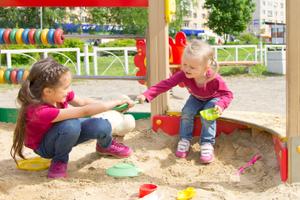In the 1990s, there was a time when I was seeing a lot of early years educators in my work as a community- based psychologist. We’d often have case conferences about particular children with behaviour problems and we got together to work out a cooperative solution. For everyone involved (paediatrician, educators and allied heath staff) the purpose was to nut-out a strategy to see if there were better ways to handle a child’s meltdowns and not have to resort to coercion, or worse!
As the local ‘go-to’ person for children’s behaviour problems, I advised what I knew about how to deal with children’s behaviour problems so that they would know what to do next time a child was playing up. Simple? Well, sometimes it was and sometimes it wasn’t.
It wasn’t a simple fix if a child had a longstanding habit of behaving badly. Some of these kids came from pretty terrible backgrounds where they were yelled at or worse, and there wasn’t always going to be an easy solution.
At the time, the main behaviour management program around was one in which educators promoted a praise and rewards version of helping the child behave differently. Often the educator was asked to reframe a negative behaviour into a positive one, a process called ‘connoting’. The process was then to teach that wanted behaviour and then to reward it. This positive behaviour management program went on to suggest that, if a child was taught to ‘speak kindly’, they should be praised or rewarded if that behaviour was seen thereafter. This seemed a logical approach, but it had one large draw back; it actually didn’t give children experience in successfully wrestling with the emotional frustration that often sat in behind the misbehaviour in the first place.
Most of us would remember the now-famous Marshmallow Study. What did we learn from these experiments? Well, we found out that four-year-olds, who could wait (and who did not eat the marshmallow put in front of them) had better frustration tolerance and did better both socially and academically. In other words, those children who had better frustration tolerance fared better than the ones who didn’t.
Let’s go back to the aforementioned children who had longstanding behaviour problems - the ones who we were regularly meeting about in our case conferences. Often, what we were observing in these children was that their misbehaviour had been developing for years and it was often a failure on their part in managing their frustration. And, then what we were seeing was that these kids habitually flipped-out more quickly than their better behaving peers. So, what struck me was that the behaviourist version of behaviour management seemed inadequate in helping to change that behaviour.
As the so-called go-to person, I often felt pretty uncomfortable advising educators that they just needed to just praise good behaviour, when that difficult behaviour was in its essence an emotional overreaction. It didn’t seem to me that a positive comment here or there was going to make an iota of difference in helping these children to better manage their frustration, up or down.
Don’t get me wrong: the rewards and praise school of thought has its place, especially when we want to teach children a new skill, like brushing their teeth. What I am saying though, is that the behaviourists’ view of connoting something as positive and then praising the behaviour, won’t as-readily teach children how to wrestle with their impulses to refrain from hitting someone. And, nor would it necessarily improve their emotional competency.
You see, to become better at self-regulating, children need to actually manage the emotion of a frustrating moment, and that requires a bit of training. They need to get better at monitoring their feelings (a process Goleman’s calls ‘identifying’), then ‘tracking’ (following the feelings within their body for long enough) but not doing anything about it for the moment and then managing it. And managing it might mean walking away or doing as they’ve been asked to do without flipping their lid! In other words, children need practise in being able to manage their emotional selves and at times, they need explicit teaching. They need to learn how to manage small doses of discomfort so that they can manage ‘big’ doses, later on. The discomfort I am talking about here I call ’scrunch’ face - and it happens when an educator pulls-up a child from acting on his or her impulses such as beginning to be rude or harassing another child.
Child psychiatrist, Daniel Siegel, tells us that in order for children to develop self-regulation, they have to practise using their ‘mental brakes’ (located in their pre-frontal cortex) and adult carers have to get better at tolerating the distress a child may experience if they set a limit. In other words, it’s up to us as educators (and parents) to get better at tolerating children being uncomfortable. It may seem strange that a psychiatrist is telling us adult carers to purposefully put kids into momentary discomfort but, without this practise they are less likely to develop the neurons that act as the ‘brakes’. At the moment in Australia, I think there are there are three main barriers in the minds of educators that are stopping educators from developing frustration tolerance in children:
There is still a sense, in the behaviour management field, that educators must always err on the side of being positive with children. It’s not seen as politically correct to put children under any pressure. But we need to be clear with children about what they’re not allowed to do, as well as encouraging them in what they need to do. This ambivalence about not wanting to appear negative can stop us acting confidently.
Second, there’s a fair degree of not wanting to appear ‘uncool’ by insisting that a boundary be followed. Other people may be watching and unless we’re reasonably sure about what we are doing, we may feel we’re being judged by other people. I think we need to remember that one of the roles of educators is to teach children what is ‘appropriate’ and what is ‘inappropriate’ in behaviour. If that means saying no or causing them some frustration, then so be it.
I think that if, as educators, we don’t have theory of behaviour management that includes how to develop self-regulation we will use what’s fed to us by education systems which, from where I stand, is largely behaviourist. Any theory of behaviour management should be not just sit on a rewards and praise platform it should be founded on helping children to develop emotionally, socially and academically.
Talk Less Listen More is a method-based programme taught in the early years’ sector, nationally. It meets the standards outlined in The National Quality Framework and it helps children to develop emotional skills so that they won’t have to be overly directed by an educator. It helps children to manage their frustration and, by learning those skills, it helps children to do well in life and at school.
To find out more about what we do in the early years sector go to https://www.parentshop.com.au/early-years/
By Michael Hawton, MAPS


